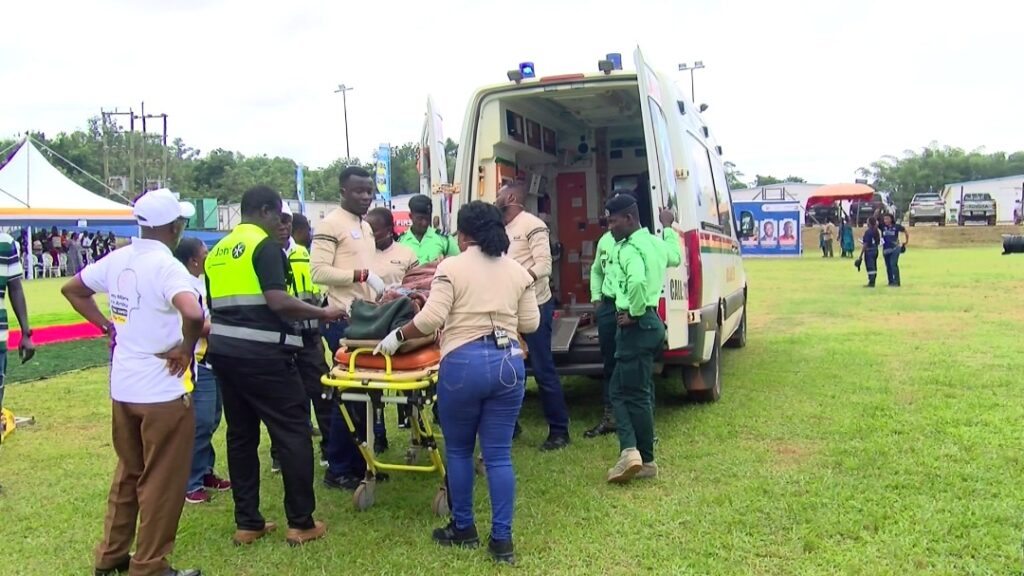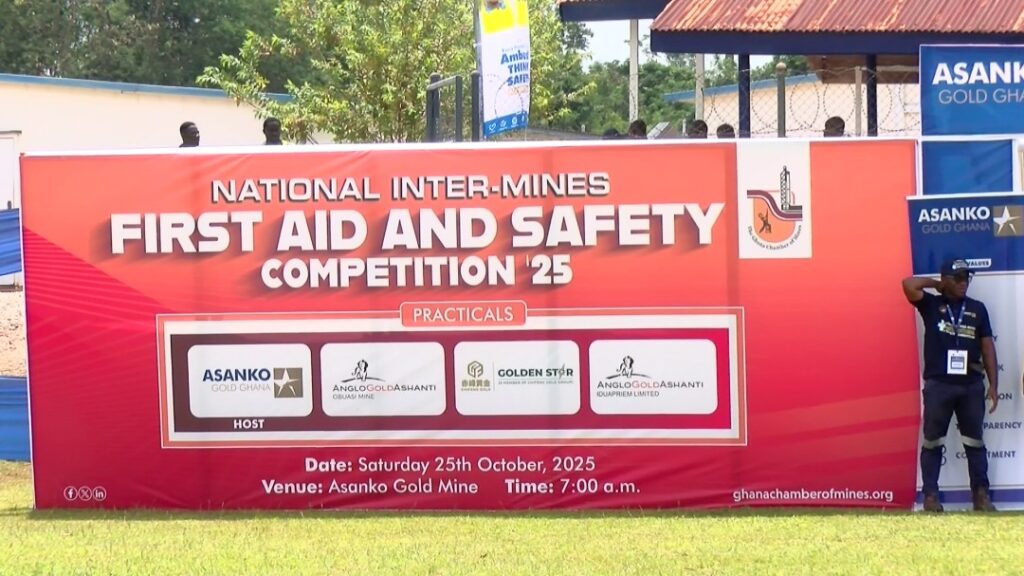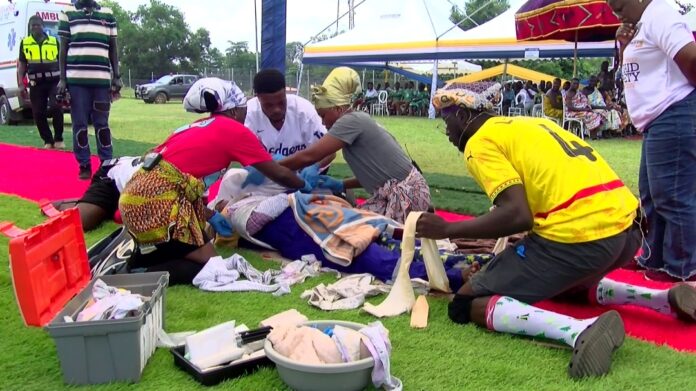The Ghana Chamber of Mines says it is tightening supervision of large-scale mining operations to ensure communities within their catchments are actively involved in safety initiatives.
It follows the worrying increase in workplace injuries recorded at most mining companies across the country.
The Chamber believes extending safety standards beyond the mine’s boundaries will reduce the scale of damage in the advent of disasters.
Available data from the Chamber of Mines suggests a mixed picture of the mining sector’s safety performance in 2024.
While there were gains in some areas, reportable injuries rose by six percent, with first aid cases climbing from 162 in 2023 to 172 last year.
Severe injuries which led to more than 14 days of worker’s absence saw a sharp increase from 17 to 43.

Conversely, fatalities dropped from seven to four within the same period, representing a 42.9 percent improvement.
The Chamber of Mines expressed concern that contractor-related accidents continue to dominate incident records, pushing for greater cooperation between companies and contractors, coupled with sustained safety training.
Director for Analysis, Research and Finance at the Chamber, Christopher Opoku Nyarko, stressed that safety remains the industry’s most important value.
He noted that although fatalities have reduced, non-fatal incidents require urgent action.
“Safety is not just something we talk about; it is our first core value. Every incident is investigated, lessons are shared across the industry, and we work to ensure it never happens again,” he said.

The 2025 edition of the National Inter-Mines First Aid and Safety Competition assembled teams from large-scale mining firms and their host communities to showcase practical responses to emergencies both at mine sites and within the communities.
The competition forms part of the industry’s efforts to transfer lifesaving skills to surrounding communities, equipping residents to respond during emergencies.
Participating companies included Golden Star Wassa, Asanko Gold Mine, AngloGold Ashanti Iduapriem, AngloGold Ashanti Obuasi, and Ghana Manganese Company Limited.
Occupational Health and Safety Manager at Asanko Gold Ghana, Emmanuel Atitiati, noted that limited access to community members remains a major hurdle in expanding safety education.
“We cannot reach every household at the same time, so we rely on community leadership to pass on the information. Basic safety at home is just as important as safety on-site,” he explained.
In many mining towns, residents must share roads with heavy-duty trucks, increasing safety risks.
District Chief Executive for Amansie South Emmanuel Marfo, urged intensified public education on safety owing to the growing motorcycle-related accidents in the district.
“The majority of emergency cases we receive are linked to motorcycle crashes. Many riders do not wear helmets and lack proper training. We are engaging traditional leaders to introduce by-laws and collaborate with mining companies to offer rider education,” he stated.
Meanwhile, Asanko Gold Mine, hosts of the 2025 Inter-Mine First Aid and Safety Competition, under the auspices of the Ghana Chamber of Mines, clinched the top spot in the community team’s category.
Source: Stephanie Frimpong



